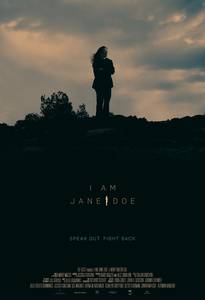 Every once in a while, a film – in this case, a documentary – comes along on a particular topic that is so eye-opening that it makes you stop and ask yourself how in the hell you didn’t know about it earlier.
Every once in a while, a film – in this case, a documentary – comes along on a particular topic that is so eye-opening that it makes you stop and ask yourself how in the hell you didn’t know about it earlier.
I Am Jane Doe (2017) is one of these films.
I Am Jane Doe is a documentary, currently available on Netflix Instant, that exposes the human trafficking industry in the United States and analyzes the ways that Backpage.com, the country’s second-largest classifieds website, facilitates it. It tells the story of three teenaged girls who were trafficked on the website and who are all now fighting alongside their mothers to bring Backpage down through the courts of their respective states. More importantly, it brings an issue that most people would prefer to pretend does not exist into sharp, and disturbingly clear, light.
I think that we all would like to think that human trafficking is an issue that exclusively belongs to the Third World. We live in comfortable, plausible denial and act as if, because there are slim to no visible “red light” districts in the US, prostitution (particularly that of young women and girls) does not happen here. The fact of the matter is, though, that there are thousands of cases of human trafficking in the United States – and many more cases likely exist, but go unreported. Furthermore, even when human trafficking cases are reported, victims may find little resolution through the American legal system, as this film shows so clearly.
I Am Jane Doe focuses on three mothers who attempted to sue Backpage.com (on behalf of the damages suffered by their daughters,) for failing to address Backpage’s policies that facilitated the trafficking of their daughters and, presumably, of other young women and girls as well. Interestingly, the film shows that Backpage was mostly protected due to a clause in the Communications Decency Act that waives third-party web platforms from being liable for the content posted by users. The film traces the lawsuits’ pathways through court, featuring interviews from several attorneys along the way, and then shows the ways which (in all likelihood) the better avenue to produce change is through the legislative, rather than judicial, branch.
I Am Jane Doe is not only educational and enlightening, it breaks down complex issues in a way that makes them easily understandable (if not easily digestible) by the average viewer. The narration, done by Jessica Chastain (best known for her roles in films like Zero Dark Thirty [2012], The Martian [2015], and most recently Miss Sloane [2017]), is clear and compelling, and Mary Mazzio’s direction and production ensure that this film will be one that sticks with you for far more than 100 minutes. Perhaps, however, I should have expected this: Mazzio is a woman of many talents. Not only is she a former rower for the United States in the 1992 Olympics and a documentary filmmaker, whose past work includes A Hero for Daisy [1999] (which won Mazzio a Gracie Award in recognition of her commitment to producing exemplary media by women, for women, and about women), she also has an undergraduate degree in political science and a law degree from Georgetown Law. This educational background explains the deftness with which Mazzio navigates the confounding legal failure of what would appear (at least morally) to be a slam-dunk case against pimps and human traffickers. Mazzio’s intelligence is obvious, not only through her credentials but also through the film itself; but I Am Jane Doe is much more than your average smart film.
The greatest strength of I Am Jane Doe is not that it teaches viewers things, or gets across the opinion of the filmmaker; there are dozens of documentaries on Netflix alone that do that already. Rather, the most important thing about I Am Jane Doe is the way that it makes viewers feel; truly, it is the type of film that I could easily see inspiring someone to pursue a career in law, politics, or even documentary filmmaking. And, in a world that is so oversaturated with media, so much of it subpar, this is the standard that we should be setting for the films that we watch and talk about, and the kind of films that Hollywood invests its time, energy, and money into. There are times that I Am Jane Doe will leave you gasping for air, will leave you feeling disappointed, helpless, and perhaps even frightened. But this is all done intentionally; by leading viewers to these feelings, Mazzio allows us to experience the tiniest fraction of what trafficking victims feel each and every day. Hopefully one day this film (and others like it) will empower enough people to take whatever action – legislative, legal, or even artistic – is necessary to actually banish this issue to the shadows, not only of the internet, but also of the world, where it belongs.
FINAL REVIEW: 4.5/5 stars
Author Biography
Ariana Aboulafia is a native New Yorker and an alumna of the University of Southern California with a BA in political science. She currently resides in Miami, Florida.
Film Details
I Am Jane Doe (2017)
USA
Director Mary Mazzio
Runtime 98 minutes
Netflix
USA, 2017
Produced by 50 Eggs Films



































